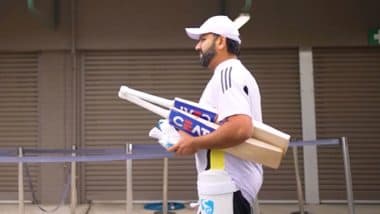
By Verlina Reynolds-Jackson and Michele Russo As we embrace the fall season, students across the country have settled into their school routines - new notebooks and new classes, teacher conferences, and buzzing hallways. Every school year brings new opportunities, and new challenges. In an ever-evolving world that demands innovation, adaptability, and critical thinking, we must ask ourselves: How are we preparing our children for the future? In a time when schools are often hyper-focused on STEM subjects and standardized testing, we risk overlooking a critical element in a well-rounded education – arts education.
Arts education is not a luxury, it is essential to the holistic development of young minds. For over 50 years, Young Audiences Arts for Learning – the nation’s largest arts-in-education learning network -- has been on a mission to inspire young people and expand their learning through the arts. The vision is simple: a future where all children in our region engage in high-quality arts learning that fosters creativity, expands cultural awareness, and strengthens critical thinking.

Arts education goes far beyond drawing, painting, or playing an instrument. It’s about instilling a mindset that encourages creativity, empathy, and problem-solving. It is through the arts that students learn to see the world through different lenses, cultivate a sense of curiosity, and connect more deeply to their own cultures and those of others.
Research consistently shows that children engaged in the arts perform better academically, are more socially and emotionally aware, and develop stronger critical thinking skills. When students learn to create through dance, music, theater, or visual arts, they also learn persistence, collaboration, and the value of constructive feedback – skills that are invaluable in any career or life path. In New Jersey, the goal needs to be to make arts education accessible to every child, regardless of their socioeconomic background, geographic location, or ability.
Young Audiences has a model that brings professional teaching artists directly into schools and eliminates barriers to participation. This is vital. Arts programs must span all art forms, cultures, and formats, including workshops, residencies, performances, and professional development for teachers.
By meeting schools where they are and tailoring programs to their unique needs, we can integrate arts learning into the school day in a way that complements and enhances traditional curricula. Arts education has the power to transform not just individual students but entire school communities. Over the years, we have seen firsthand how embracing the arts can change school culture and improve student engagement, academic achievement, and broad social dynamics.
But this transformation doesn’t happen overnight, and it doesn’t happen in isolation. Our schools face immense challenges, from limited budgets to the pressures of standardized testing, but we have also seen how schools can thrive when the arts are given the space to flourish. It takes time, but the proof is in the pudding and an arts education has proven to be far from a distraction but a driver of student learning.
The world is in desperate need of creative thinkers and compassionate leaders. By nurturing creativity, expanding cultural awareness, and fostering critical thinking, arts education helps children grow into adults who will lead with innovation and empathy. We invite educators, policymakers, parents, and community leaders to join us in our mission.
Together, we can ensure that all children have the arts experiences that will inspire them, expand their minds, and prepare them for a bright future. Back to school is more than just the start of a new academic year – it’s a time of new beginnings and endless possibilities. Each student steps into the classroom with the potential to grow, discover, and create.
Arts education is a crucial part of that journey because creativity is not an afterthought but a cornerstone of education, it’s essential for the development of our next generation of thinkers, dreamers, and doers. Assemblywoman Verlina Reynolds-Jackson is Co-Chair of the Joint Committee on the Public Schools. Michele Russo is President & CEO of the Young Audiences Arts for Learning New Jersey and Eastern Pennsylvania.
To comment on this op-ed, send a letter to [email protected] . Our journalism needs your support.
Please subscribe today to NJ.com . Bookmark NJ.
com/Opinion . Follow on Twitter @NJ_Opinion and find NJ.com Opinion on Facebook .
.










